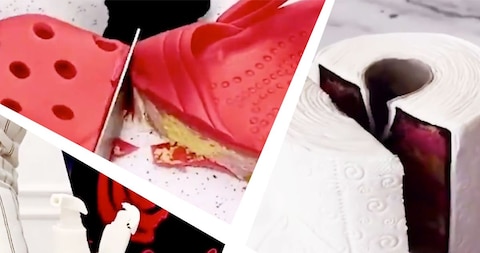The Technology 202: Here’s how Trump could go after TikTok
with Tonya Riley
The Trump administration’s calls to ban the video-streaming app TikTok are intensifying.
There’s little precedent for the U.S. government to ban a popular consumer app, and it’s unclear how President Trump plans to move forward. The most stringent Internet bans, like those imposed by China’s Great Firewall or India’s recent actions against Chinese apps, block all communications between a targeted company’s servers and users in a given country. But it’s unclear how such a blunt method would be implemented under U.S. law, and such a move would likely raise censorship concerns and First Amendment challenges.
Yet experts tell me the administration has a variety of tools at its disposal that could spell trouble for Generation Z’s favorite social network, which is owned by China’s ByteDance. And the White House has shown its willing to impose tough measures to limit other Chinese companies it views as a security threat, including Huawei. Trump’s options range from leveraging a recent executive order expanding government’s powers to protect communications networks to exerting pressure through a powerful national security review agency, experts tell me.
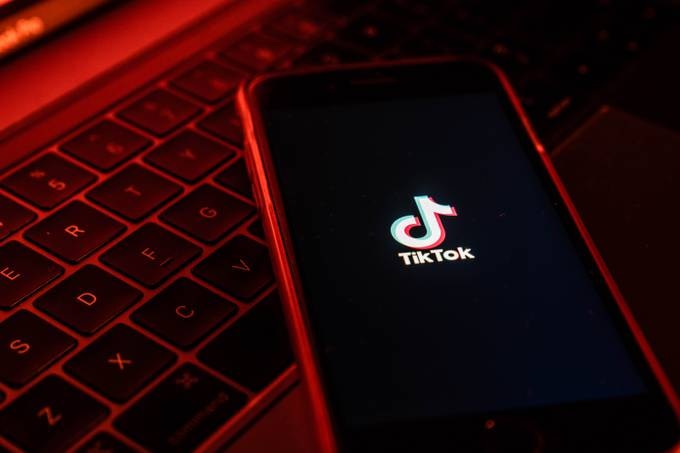
The logo for ByteDance Ltd.’s TikTok app Photographer: Lam Yik/Bloomberg
TikTok is now solidly at the center of the Trump administration’s anti-China push.
The app known for viral dance videos has become a flash point as Trump ramps up his rhetoric against Beijing’s handling of the coronavirus pandemic as the number of U.S. infections climbs. The attacks on TikTok could escalate as Election Day approaches and the president makes that criticism central to his reelection pitch.
“Jobs and China, that’s what this campaign is about,” White House trade adviser Peter Navarro said on Fox News Sunday.
Trump officials are signaling a move is coming. Navarro said to expect “strong action” against TikTok, as he called the company’s new American chief executive Kevin Mayer a “puppet.” He accused TikTok without evidence of sharing Americans’ data with the Chinese Communist Party.
“What the American people have to understand is all of the data that goes into those mobile apps that kids have so much fun with and seem so convenient, it goes right to servers in China, right to the Chinese military, the Chinese Communist Party, and the agencies which want to steal our intellectual property,” Navarro said.
Trump suggested in an interview last week that a TikTok ban is one of many options he’s considering to punish China for its handling of the coronavirus. A senior administration official said the administration’s concerns also include “well-documented censorship within Chinese-owned apps.”
Yet TikTok insists it has never shared user data with the Chinese government and wouldn’t do so if asked.
“Protecting the privacy of our users’ data is a critical priority for TikTok,” TikTok spokeswoman Ashley Nash-Hahn said in a statement. “User data is stored in the U.S. and Singapore, with minimal access across regions, and our American Chief Information Security Officer has decades of U.S. law enforcement and security experience.”
The Trump administration’s rhetoric signals some action could be coming. Here’s what experts say to watch:
Trump could target TikTok through a 2019 executive order aimed at Chinese companies.
That order empowers the Commerce secretary to effectively ban any communications tool that is a national security threat to the United States by strictly applying the International Economic Emergency Powers Act. Once the government made a finding TikTok posed a national security threat under that law, Stewart Baker, who previously served as general counsel of the National Security Agency, Americans would effectively be banned from doing business with the company.
“Americans can’t work for it, Americans can’t advertise on it, Americans can’t put it in their app store,” Baker said. “You can’t give them a nickel or take a nickel.”
Baker said teenagers who already downloaded the app could continue using it. “But it wouldn’t be maintained, there wouldn’t be ads, there would be no American staff working for the company,” he said. Baker currently works for law firm Steptoe & Johnson, which counts TikTok rival Facebook as a client.
Baker added he was unaware of a time where this executive order has previously been used.
The Committee on Foreign Investment in the United States could force changes at the company.
The cross-government group that reviews foreign transactions involving American firms last year opened an investigation into the 2017 deal in which the Beijing-based ByteDance bought a popular karaoke app, Musical.ly, for up to $1 billion, my colleagues Drew Harwell and Tony Romm reported. Such a review can result in retroactively terminating deals, fines or corporate changes.
There is precedent for the U.S. government quashing deals involving social apps they say pose national security threats. Last year the U.S. government demanded the Chinese owners of Grindr, the gay dating app, give up their control of the company. They could push for a similar outcome with TikTok, said James Andrew Lewis, the senior vice president and director of the technology policy program at the Center for Strategic and International Studies.
Lewis said there may be a way to structure an agreement so that owner Bytedance maintains a stake as an investor but no operational control. “And so that way they get the money and none of the headache,” Lewis explained.
Already TikTok has been considering changes to its corporate structure as national security concerns mount.
“As we consider the best path forward, ByteDance is evaluating changes to the corporate structure of its TikTok business,” Nash-Hahn said.
Digital rights advocates are criticizing the administration for not spelling out its plans.
The broad uncertainty about what the administration means when it says it would ban TikTok and how it would carry out such an order is vexing advocates for a free and open Internet.
“There is a point where it is just it ultimately is the responsibility of the government who is saying they’re going to do a ban to explain what that ban is, what are the authorities that support that ban, how is it lawful and constitutional,” said Kurt Opsahl, deputy executive director and general counsel at the Electronic Frontier Foundation. “I think that would be something they really should do when they first mentioned a ban to avoid a little bit of this time period where they talk about something and then it’s unclear what they mean by it. ”
Update: This article was updated to include Baker’s current position with Steptoe & Johnson.
Our top tabs
Tech giants backed a lawsuit against a Trump administration rule that could force out international students.
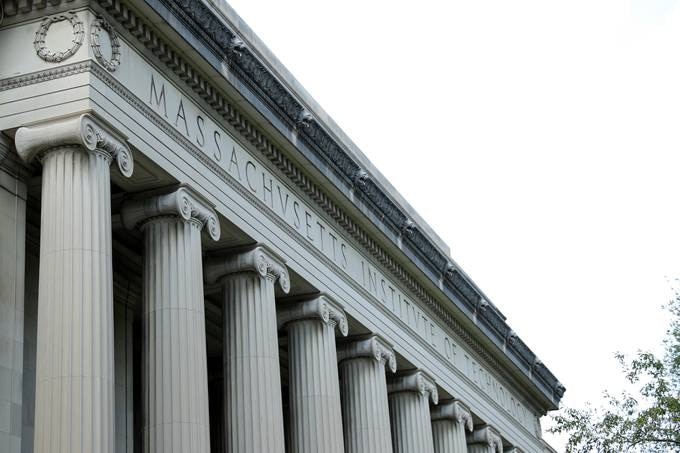
The Massachusetts Institute of Technology. (Maddie Meyer/Getty Images)
Facebook, Google and Microsoft joined a brief filed by the U.S. Chamber of Commerce on Monday in support of a lawsuit brought against Immigration and Customs Enforcement, Ashley Gold reported for Axios.
The tech companies are asking a federal judge to halt or slow the enforcement of the new guidance to prevent foreign students from staying in the United States if their academic institutions don’t offer in-person classes. The parties argue the administration failed to properly consider the consequences of the move on the U.S. business community.
“These students contribute substantially to the U.S. economy when they are resident in the United States,” the brief states. “And without international students, American educational institutions face a sudden loss of critical mass — jeopardizing their ability to maintain their standards of excellence; produce research that helps keep U.S. businesses on the cutting edge of innovation; and provide the training that makes American students a strong talent pool for their future employers.”
The 19 tech companies and trade associations backing the brief also include Spotify, Twitter, Salesforce and Dropbox. More than 200 colleges and universities are also backing the suit.
The U.K. government will bar telecom companies from purchasing equipment made by Huawei.
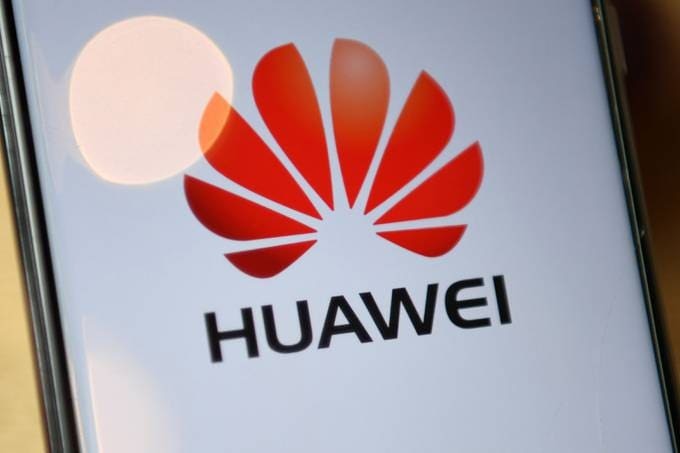
The logo of Chinese company Huawei is seen on the screen of a Huawei mobile phone in London on July 14, 2020. – Britain on Tuesday ordered its telecom providers to stop purchasing 5G equipment from China’s Huawei giant from the start of next year, and to strip out all of its equipment by 2027. (Photo by DANIEL LEAL-OLIVAS / AFP) (Photo by DANIEL LEAL-OLIVAS/AFP via Getty Images)
The government will give the companies until 2027 to remove the Chinese company’s technology from their 5G networks, the Wall Street Journal’s Stephen Fidler and Max Colchester report. The U.K.’s reversal under U.S. pressure and as relations between China and Western countries are increasingly strained by a new Hong Kong security law.
Oliver Dowden, the British minister in charge of digital issues, told the House of Commons on Tuesday that new purchases of Huawei 5G equipment would be banned from the end of this year. As recently as January, the U.K. said it could address the risk of Huawei equipment in its networks.
The country is launching a review on when to ban the purchase of Huawei kit from the country’s fiber optic network. This will be followed by a transition period, which could last up to two years.
U.S. officials have long warned that Beijing could direct Huawei to spy through 5G networks, which aim to provide superfast wireless speeds. Huawei and the Chinese government have disputed the charges.
The White House’s top tech official will take on a new acting role at the Pentagon.
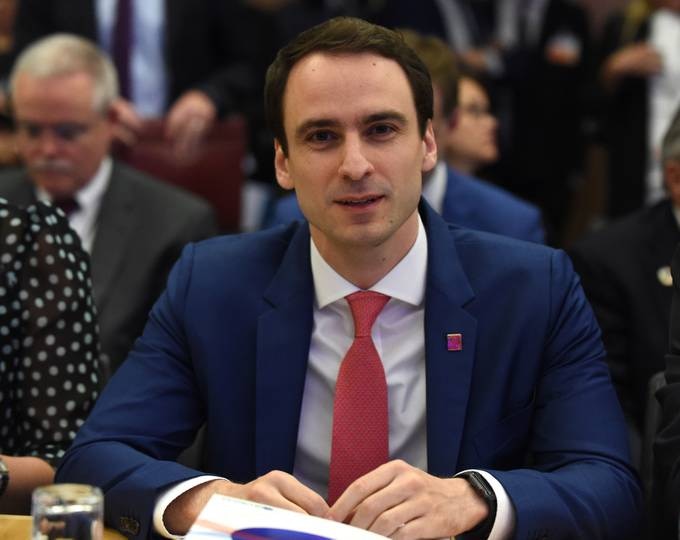
White House Chief Technology Officer Michael Kratsios. (Eric Piermont/AFP/Getty Images)
Michael Kratsios will serve as acting undersecretary of defense for research and engineering in addition to his current role as U.S. chief technology officer, the Defense Department announced.
Kratsios joined the White House in 2017. He is best known for spearheading initiatives in artificial intelligence, quantum computing and 5G communications technology. He has also led the White House’s private-public partnership to use supercomputers to combat the coronavirus pandemic.
“In seeking to fill this position we wanted someone with experience in identifying and developing new technologies and working closely with a wide range of industry partners,” Defense Secretary Mark T. Esper said in a statement.
Kratsios formerly served as chief of staff to Peter Thiel, one of Trump’s most prominent Silicon Valley supporters and a co-founder of Palantir, which has more than $60 million worth of military contracts.
Kratsios is a strong critic of China’s use of artificial intelligence and other technologies for alleged human rights abuses.
Rant and rave
Another way China could be siphoning American data? Bad routers. Journalist Karl Bode explains:
I don’t know who needs to hear this, but China doesn’t need Huawei or TikTok to spy on you if you’re going to connect shitty routers and IOT devices to your home and business networks with reckless abandon
— karlbode (@KarlBode) July 14, 2020
The digital race to 2020
Streaming platform Twitch has reinstated Trump’s account — for now.
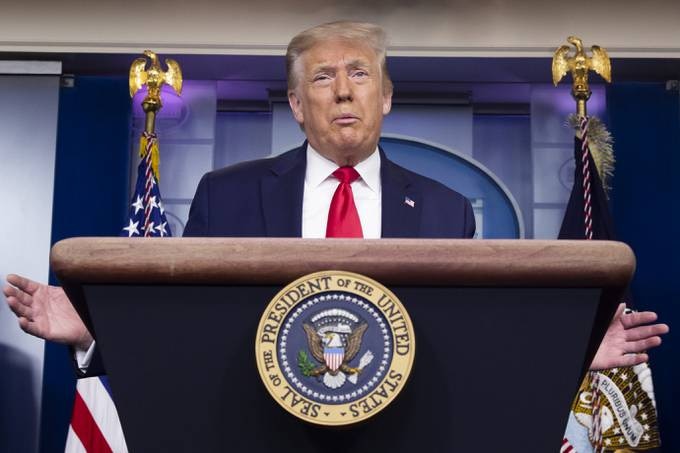
President Trump speaks during a news briefing. (Michael Reynolds/EPA/Bloomberg News)
The president’s account was suspended by the Amazon-owned company two weeks after it broadcast rallies that the company said contained language that violated its hate-speech policies, the Verge reports. (Amazon CEO Jeff Bezos owns The Washington Post.)
Meanwhile, Trump’s campaign has been focusing on microtargeting voters on Facebook, where he has outspent the Biden campaign by approximately $12 million, Bloomberg News reports. Some activists have pushed Facebook to limit microtargeting because of the potential for abuse of the technology to suppress or mislead voters.
Hill happenings
New legislation would require tech companies to let you know when your toaster is listening.
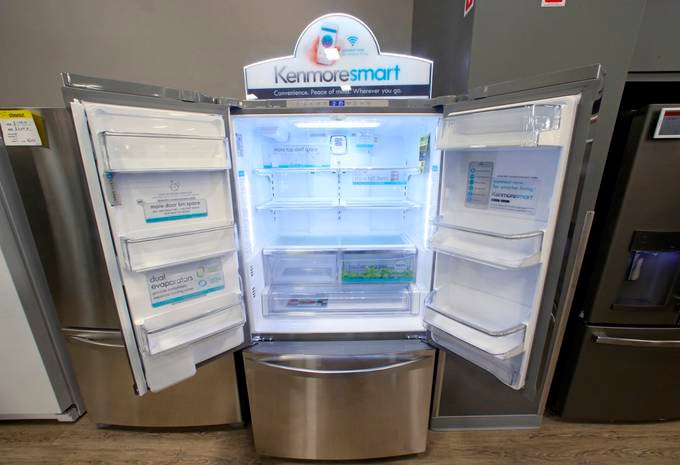
The Kenmore Elite Smart French Door Refrigerator at a Sears store in West Jordan, Utah. (Rick Bowmer/AP)
The legislation, introduced by Reps. John Curtis (R-Utah), Seth Moulton (D-Mass.) and Gus M. Bilirakis (R-Fla.), would require smart home-device makers to disclose audio and visual recording components in home devices.
The bill requires the Federal Trade Commission to work alongside industry officials to establish guidelines for properly disclosing the potential for their products to contain audio or visual recording capabilities.
“We should be allowed to make informed decisions about the electronic eavesdroppers we invite into our homes. But we can’t do it if big tech hides microphones and cameras that are always listening in refrigerators, toasters, and other household gadgets,” Moulton said in a statement.
Coronavirus fallout
Apple is pushing retail staff to work from home as coronavirus cases spike.
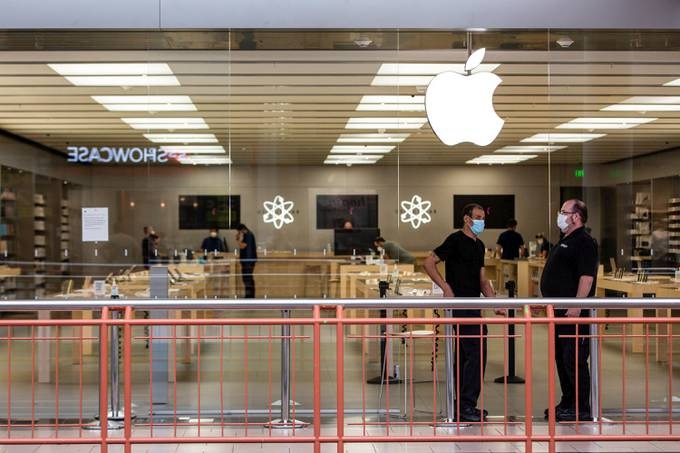
Employees stand outside the Apple store during a mall reopening. (Maranie Staab/Reuters)
Deidre O’Brien, Apple’s vice president of retail and people, urged employees to sign up for its “Retail at Home” program, Bloomberg News reports.
The program allows retail associates to switch to virtual roles while retail sites are closed. More than 90 of the stores Apple reopened this summer have already been closed due to new spikes in the virus.
The company is also shipping coronavirus tests to employees’ homes.
More coronavirus news:
Trending
A viral video showing people cutting into household items to reveal they are in fact cake has many people questioning their grip on reality.
The Cut
Daybook
- The Open Technology Institute will host an event, “How Ranking and Recommendation Algorithms Influence How We See The World,” today at 2:30 p.m.
- The House Budget Committee will hold a hearing on the need for federal investments in technology in light of the coronavirus pandemic on Wednesday at 2 p.m.
- The Center for Democracy and Technology will host an event, “A Shared Responsibility: Protecting Consumer Health Data Privacy in an Increasingly Connected World” on Wednesday at 4 p.m.
- The Center for Strategic and International Studies will host a discussion with former Google chairman and chief executive Eric Schmidt about technology, data and innovation policy on Friday at 4 p.m.
Before you log off
More in cake meme news from Dave Jorgenson:
IS
IT
CAKE pic.twitter.com/6Oc52w3nze— Dave Jorgenson 🍰 (@davejorgenson) July 13, 2020

